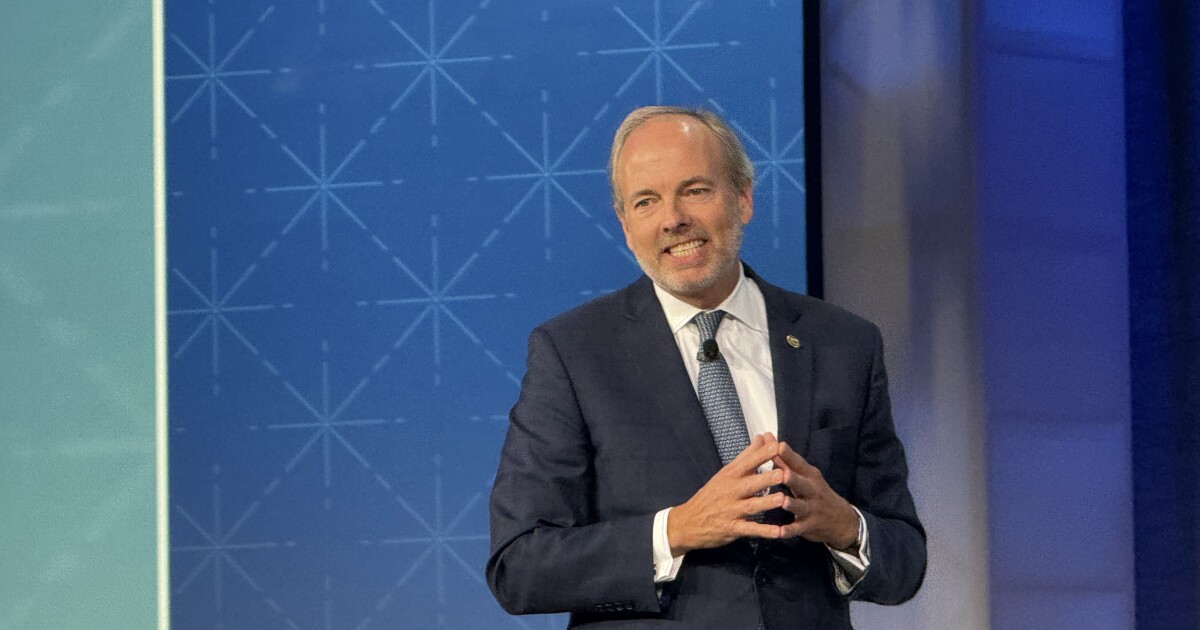
The mortgage industry is up in arms about price increases for credit score pulls.
"By now, half the mortgage industry has seen the proposed increases for accessing consumer credit," a
Bob Broeksmit, the president and CEO of the Mortgage Bankers Association also commented on LinkedIn as well as in a statement.
He reiterated his call for mortgage lenders to be allowed to use a single repository report rather than the current standard of a tri-merge.
Time to end the tri-merge
"Today's news only strengthens our call to move away from the tri-merge credit report structure," Broeksmit said in the statement Friday. "Single-file reports are used safely in nearly every other consumer finance market, and extending them into the mortgage market would provide price relief for American homebuyers by injecting real competition, lowering closing costs, and streamlining the mortgage process, all without compromising sound risk management."
His
When did credit score prices first rise?
In late 2022, FICO announced plans to segment its customer base into three tiers based on volume, with the largest grouping receiving a
A year later, the t
While FICO sets the royalty price to the credit bureau for its scores, the retail price and credit file data pricing is set by those bureaus, which FICO does not control, a company spokesperson said in a statement.
"If lenders experience cost increases for credit in 2026, it will be a result of the bureaus increasing costs of the credit file data (regardless of what they call it or their attempts to characterize their data fees) to compensate for the lost revenue they previously received as distributors of the FICO Score," the spokesperson continued. "The credit bureaus were charging on average a 100% markup on the FICO product, an increase not seen in any other market. It should be noted, they could do this because of the lack of competition in credit reports in the conforming mortgage market."
In October, FICO announced a program that will
The Consumer Data Industry Association termed the direct license program as "another price increase."
The current state of credit score modernization
When credit score modernization was rolled out by the Biden Administration, then-Federal Housing Finance Agency Director Sandra Thompson
When revamped by the current director, Bill Pulte in July,
Pulte also restored the tri-merge requirement.
Weeks before the Pulte announcement, in June, Broeksmit
Further adding fuel to this fire is that those three repositories are the joint owners of the parent of Vantagescore.
The bureaus have not provided transparency on how they price their data, the FICO spokesperson said.
"Selective transparency, disclosing pricing of their Vantagescore, and renaming the credit file data bundles, while keeping the true elements and pricing of their product and services hidden, doesn't serve lenders, borrowers, or the mortgage ecosystem," the spokesperson continued. "True transparency must apply to both credit scores and credit data."
Meanwhile the credit bureaus will also be dealing with the financial fallout from
CHLA says this is not the last of the price hikes
The Community Home Lenders of America, which represents independent mortgage bankers, agrees with a lot of Broeksmit's comments, said Rob Zimmer, head of external affairs.
But the whole chain of increases started with that 2022 price raise by Fair Isaac. This is not likely the end, either. "CHLA today is saying this will happen again in 12 months," Zimmer said.
In May, after Pulte made an X post about FICO,
- Establish a task force to review the issue
- Freeze current pricing and ban further increases
- Accelerate plans to allow use of competitor Vantagescore
- Mandate release of
historical FICO data for comparisons to other scores - Make references to required scores generic rather than specific to FICO or Fair Isaac
- Direct the GSEs to create more competition via new units that measure creditworthiness
Broeksmit said his trade group will redouble its efforts on Capitol Hill to get a legislative solution."MBA once again urges lawmakers and federal housing regulators, as well as the Consumer Financial Protection Bureau and the Federal Trade Commission, to end the government's involvement in driving up these consumer credit transaction costs," his statement ended.



